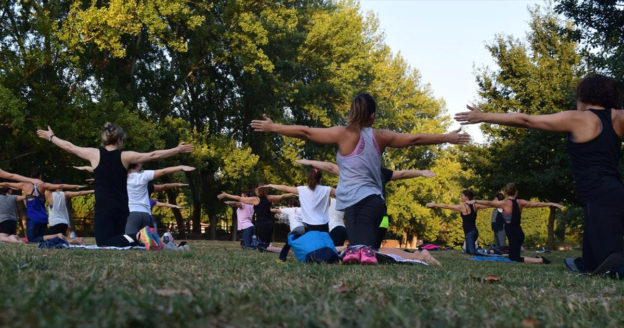Yoga is often described as being therapeutic, but is it? To much surprise, yoga is incredibly effective at restoring physical and mental health. The combination of deep breathing and light stretching is what offers peace and tranquility. Yoga can be especially helpful for chronic pain treatment in Agoura Hills because it helps you feel relaxed and in tune with yourself.
If you have been considering adding yoga to your recovery regimen, it’s worth checking out. Below are five ways that yoga can support a healthy, well-rounded recovery.
1. Boost Physical Health
Drugs and alcohol take a toll on the body. You may have damaged your organs and depleted your body’s vitamins and minerals. In dual diagnosis rehab in California, you learn how to adopt healthy eating habits and take care of your body again. Yoga can make this easier for you.
The stretching done in yoga is not overly strenuous, so almost anyone can do it. Physical benefits include improved oxygen and blood flow to the body’s organs, increased flexibility, boosted endurance and loosened muscles. A regular exercise program may also lower your risk for heart disease, stroke and cancer.
2. Support Healthy Sleeping Habits
Another thing you may struggle with is sleep. It may be difficult to fall asleep or stay asleep. However, rest is a critical part of recovery and not something that you want to miss out on. Yoga can help tire out the body and make it easier to fall asleep at night. Deep breathing also releases tension so that you have less on your mind.
3. Reduce Chronic Pain
If you suffer from chronic pain, you must be careful about taking prescription painkillers in the future. Some pain patients find that yoga is incredibly helpful at relieving their discomfort. Yoga promotes blood flow and oxygen to certain parts of the body, such as the lower back, hips and pelvis. It also increases feel-good endorphins in the brain that act as natural painkillers.
4. Improve Mental Health
Yoga and mindfulness are interconnected. Yoga forces you to slow down, relax and focus on the present. This sets you up for mindful thinking that helps manage cravings and stress triggers. Plus, the breathing techniques used in yoga are helpful when dealing with underlying mental health conditions like anxiety or depression.
5. Foster Positivity
It’s a great feeling when you are actively engaged in your recovery and not just going through the motions. Yoga encourages self-confidence because you are able to set goals, beat records and venture outside your comfort zone while doing something that is safe and healthy. Many people also say that they understand themselves better by practicing this therapeutic activity.
As you grow further in your recovery, you will discover new ways to keep yourself going. Yoga may be something that you stick with, or you may find other activities that you enjoy. Because this activity is something that most people can do, it’s great to start with. We hope that you can find something to love about it, too!








